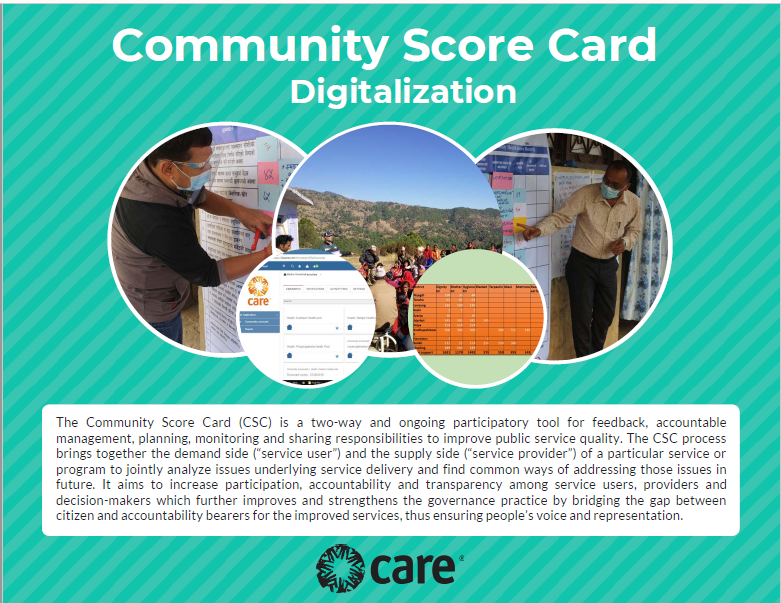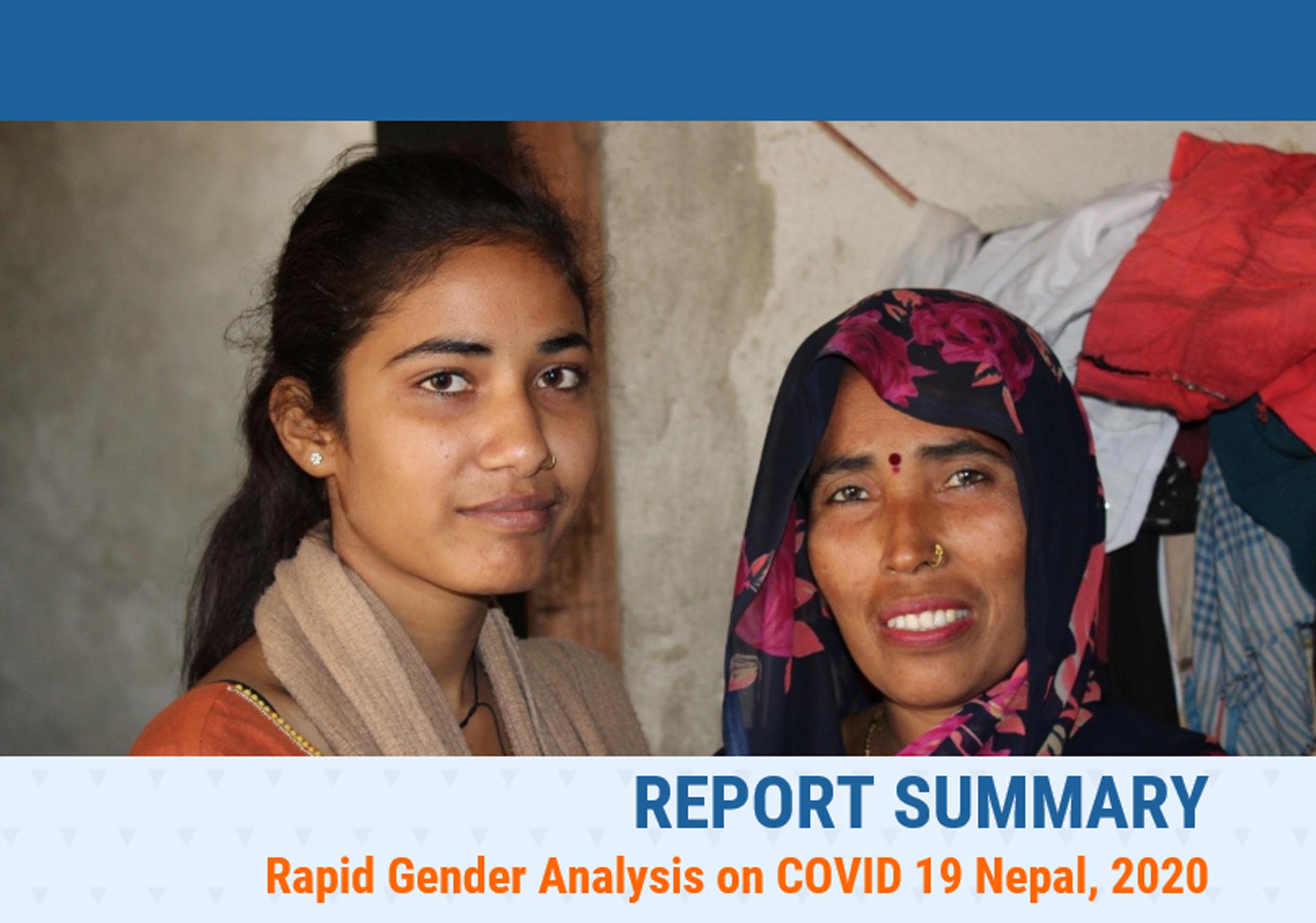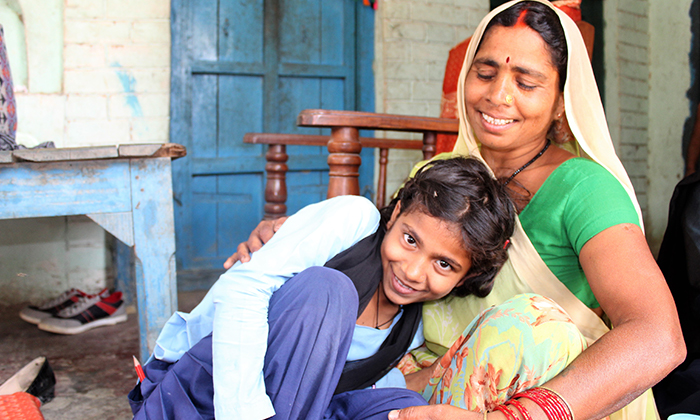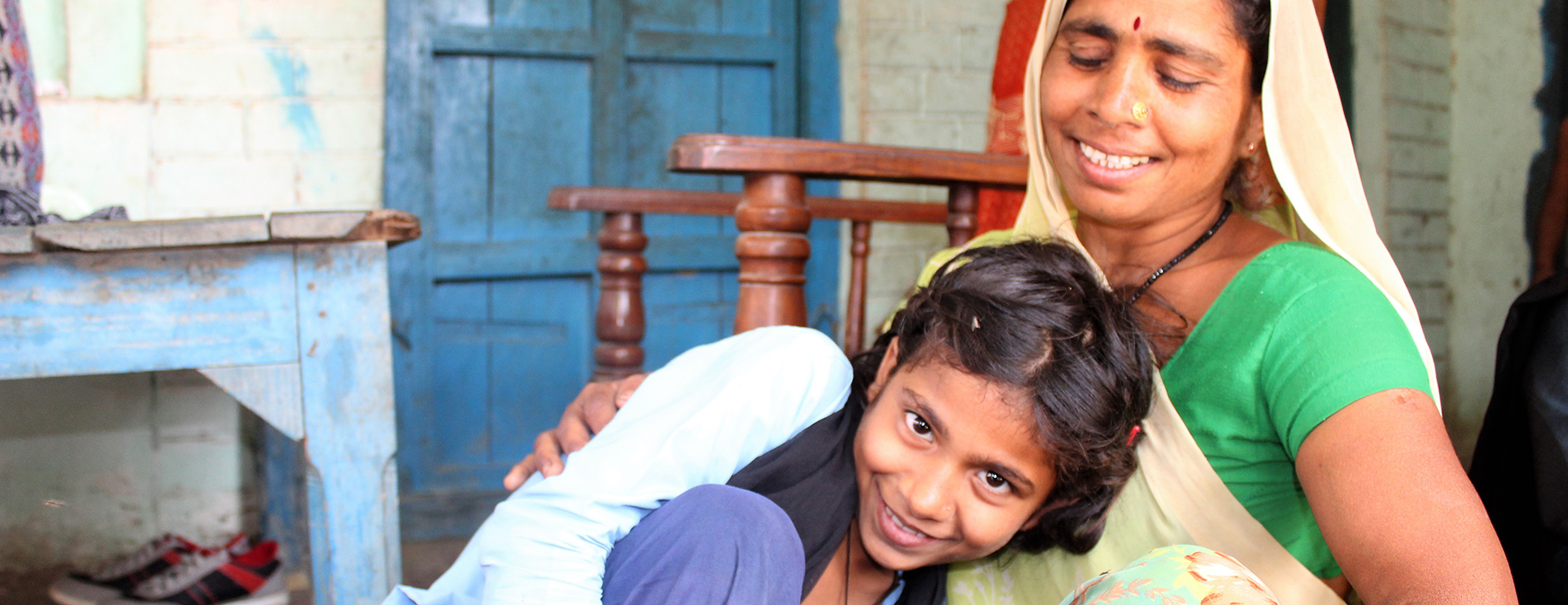
Community Score Board Digitization
The Community Score Card (CSC) is a two-way and ongoing participatory tool for feedback, accountable management, planning, monitoring and sharing responsibilities to improve public service quality. The reality of social distancing context and other restriction imposed due to COVID-19 pandemic urged CARE Nepal to find alternative ways of digital solution so that all associated CSC processes can be carried out and supported through remote working modality, without leaving any gaps in CARE’s efforts to ensure governance and accountability system.

Rapid Gender Analysis on COVID 19 Nepal, 2020
Since the onset of the global Coronavirus Pandemic, the Ministry of Women, Children and Senior Citizens (MoWCSC) identified the need to highlight the gender and intersectional impacts of the COVID-19 crisis. A Rapid Gender Analysis (RGA) was conducted to understand the gender differential impact of COVID-19 on vulnerable and excluded groups. The RGA was also conducted to comprehend how existing gender and social inequalities have been exacerbated by the pandemic in the community and in quarantine situations in Nepal. Download to read more.

Tipping Point: Program Recommendations
Hold joint dialogue sessions with girls’, boys’, and parents’ groups together so that all can benefit from shared discussions and learnings and can develop mutual respect and understanding. Separate sessions that are gender and age-specific are still important and effective moments for facilitating learning and conversation among peers in safe spaces, but joint dialogue sessions can allow for shared learning and discussions between groups.

Tipping Point: Policy and Recommendations
The evaluation shows some positive examples of how building relationships between the project and local governments has helped to garner resources for girls and to work with structures such as the Village Child Protection Committees (VCPCs) to promote girls’ rights, which contributes to achieving national goals such as ending child marriage by 2030. A systematized approach to resource allocation to ensure girls’ rights are fulfilled would include gender responsive planning and budgeting at municipal level.

Tipping Point (Phase 1): Executive Summary and External Evaluation
Phase 1 of CARE’s Tipping Point Project addressed child marriage through a dynamic process of innovation, insight, and influence in two districts of Nepal in partnership with Siddhartha Samudayik Samaj (SSS) and Dalit Social Development Centre (DSDC). Download the pdf to find more about Tipping Point’s external evaluation.

Tipping Point Nepal: Phase 1 Evaluation Findings
CARE’s Tipping Point project addressed child marriage through a dynamic process of innovation, insight, and influence in two districts of Nepal in partnership with Siddhartha Samudayik Samaj (SSS) and Dalit Social Development Centre (DSDC). In its first phase, the project promoted girls’ rights and choices regarding marriage in 16 communities using complementary approaches with collectives of girls, boys, and parents, who regularly participated in meetings, and advocacy events to raise public awareness and promote gender-equitable social norms.














